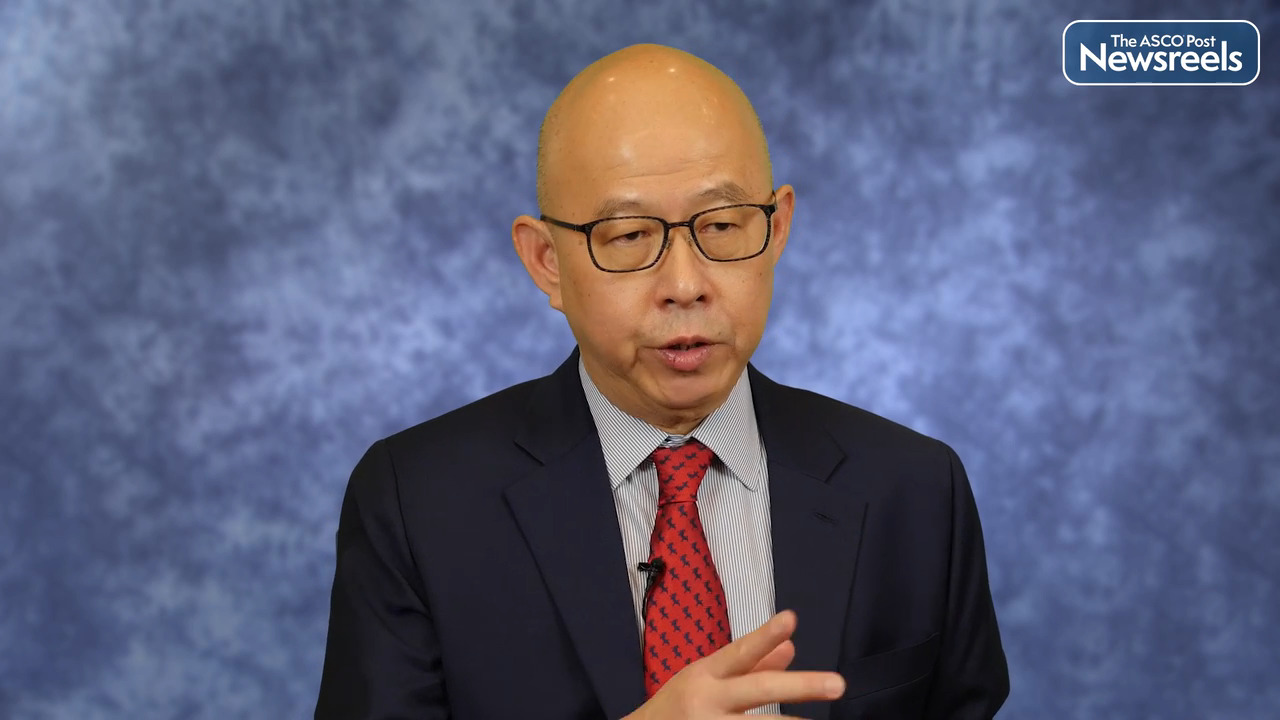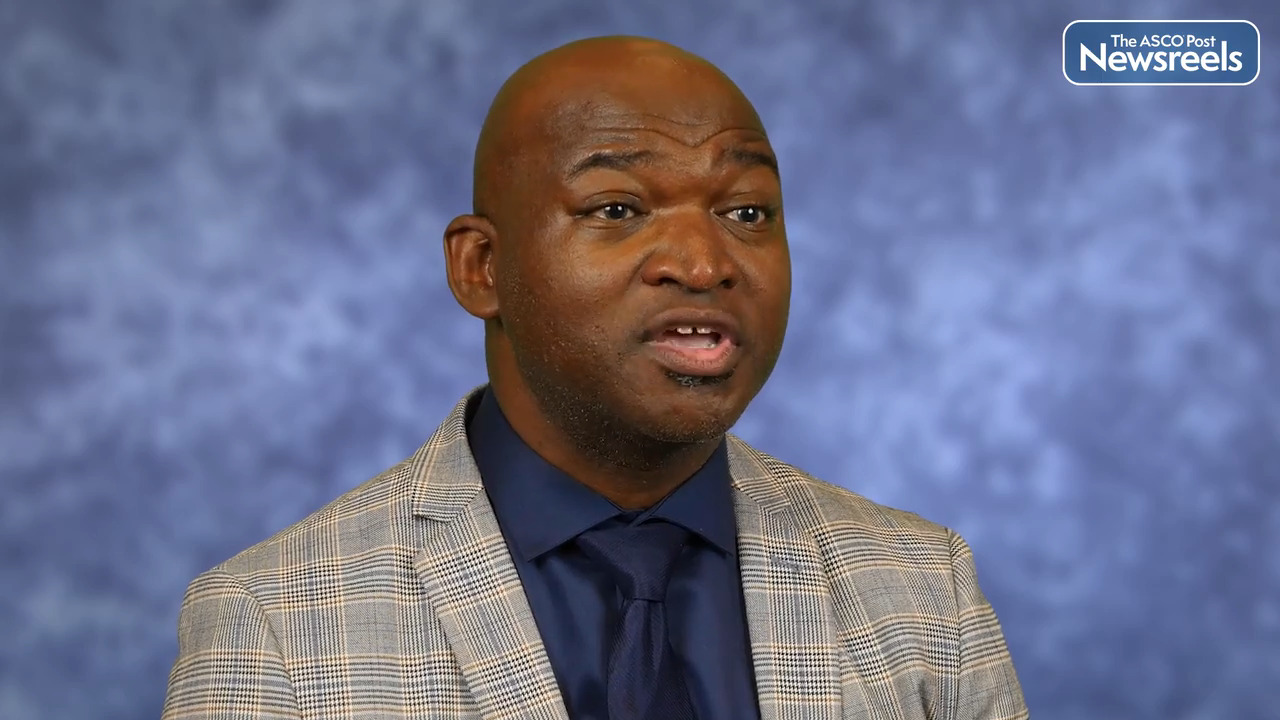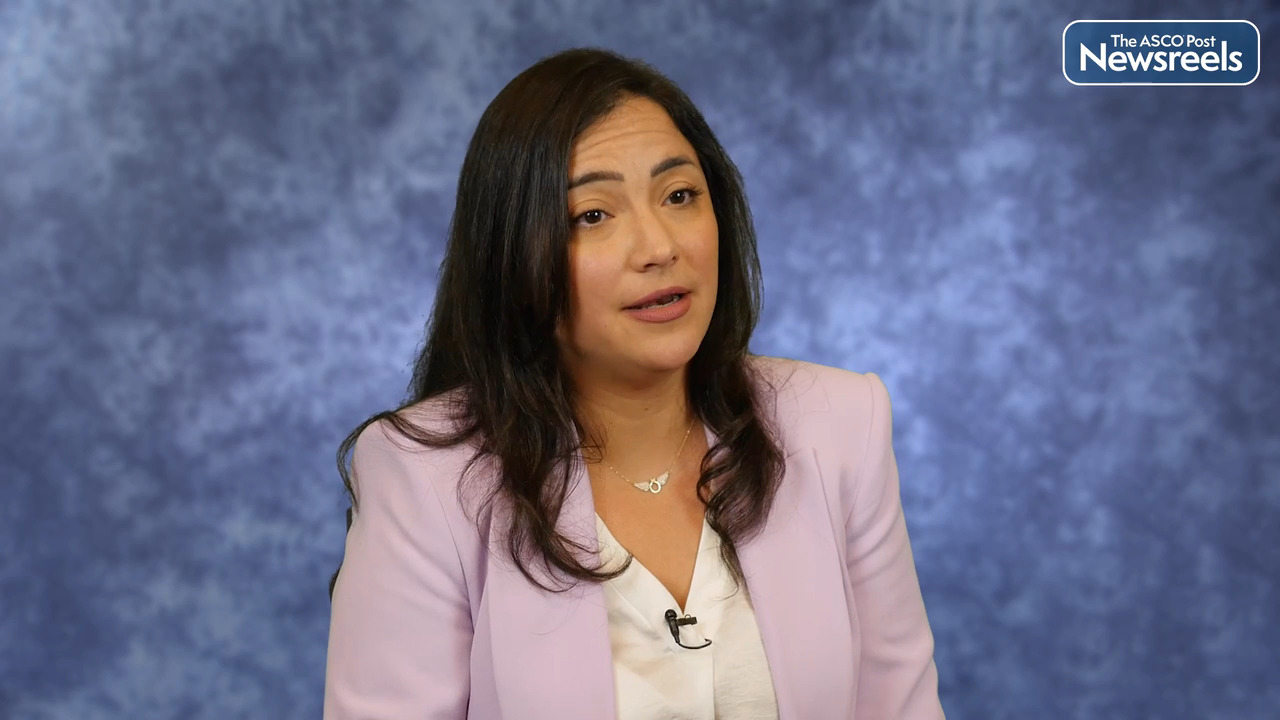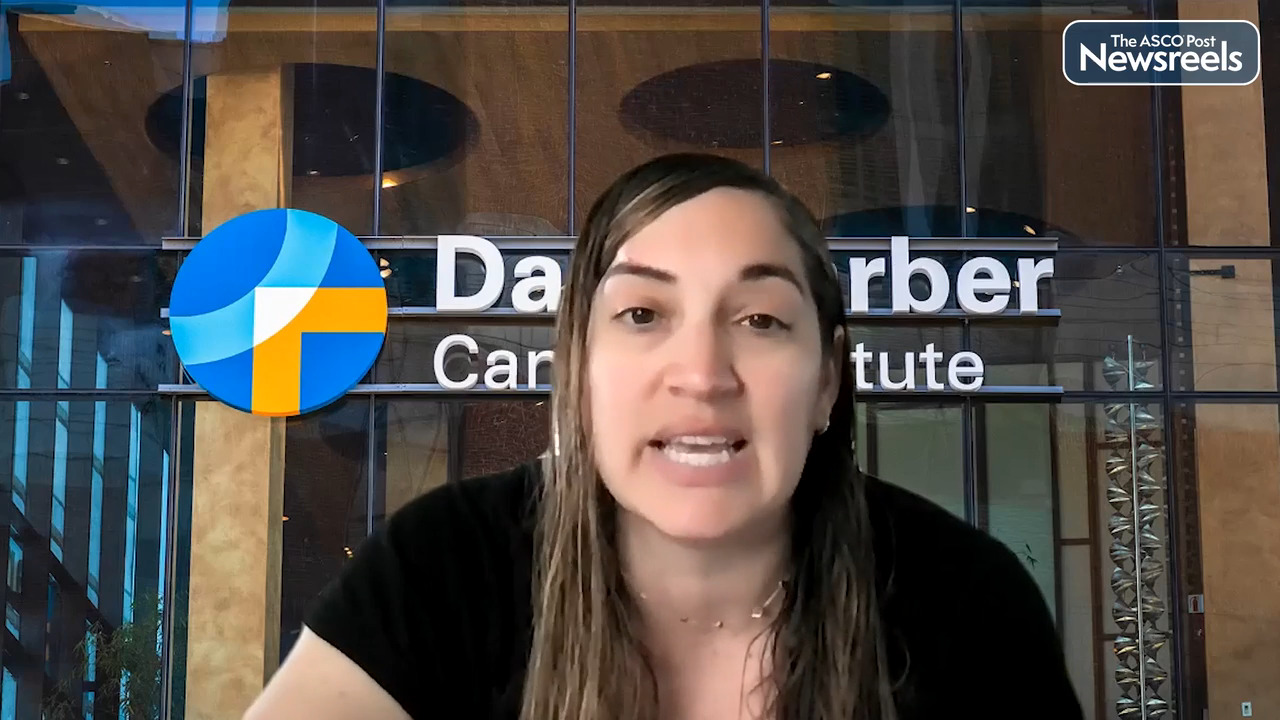Transcript
Disclaimer: This video transcript has not been proofread or edited and may contain errors.
At the AACR 2023 meeting, I presented the results of the AEGEAN study. The AEGEAN is a randomized global study testing neoadjuvant plus adjuvant durvalumab, what we call perioperative durvalumab, combined with neoadjuvant chemotherapy as compared to neoadjuvant chemotherapy alone for early stage resectable non-small cell lung cancer.
Now, by way of background, as you all know, non-small cell lung cancer remains the leading cause of cancer deaths. And even though we can cure many patients with early stage disease, recurrence rates remain distressingly high. So there have been concerted efforts to try to reduce those recurrence rates and improve cure rates. Recently, neoadjuvant immunotherapy approaches, such as neoadjuvant nivolumab, and adjuvant approaches, such as adjuvant atezolizumab or pembrolizumab, have proven to be beneficial in reducing recurrence rates. So in this study, what we're testing is does combining those two approaches, both neoadjuvant immunotherapy before surgery and adjuvant immunotherapy after surgery, improve outcomes?
So the study was a global study. There were a total of 802 patients that were randomized. There were actually 740 in the intention to treat population, and the population was stage 2 to 3B non-small cell lung cancer. Patients with EGFR and ALK mutations were excluded, and patients either got durvalumab plus chemotherapy or a placebo plus chemotherapy for four cycles once every three weeks and then surgery. And then after surgery, durvalumab every four weeks for a total of 12 cycles or placebo on the same schedule. The two arms were very well-balanced between them. And the first important thing to note and it was reassuring to see that getting neoadjuvant immunotherapy did not compromise the ability of investigators to get to surgery, to complete neoadjuvant therapy and to get to surgery, and actually rates of R0 resection, meaning the tumors were completely resected, actually was slightly higher in patients who received durvalumab.
The first primary endpoint of the study was EFS or event-free survival. The study met its primary endpoint with the statistically significant improvement in EFS observed in the durvalumab arm. The hazard ratio for EFS was 0.68, corresponding to a 32% reduction in the likelihood of events occurring. The second primary endpoint was pathologic complete response. And once again, the AEGEAN study met its primary endpoint. There was a significant improvement in pathologic complete response rate. The path CR rate was 17% in the durvalumab arm as compared to 4% in the placebo arm. The rates of major pathologic response were improved as well.
Overall, the tolerability was very good. There was no increase in grade 3, 4 events in the placebo treatment arm as compared to placebo. There was a slight increase in immune-related adverse event, but grade 3, 4 adverse events were only noted in about 4% of patients on the durvalumab arm and about 2.5% of patients in placebo arm.
So in summary, this is the first study with perioperative immunotherapy combined with neoadjuvant chemotherapy, and it hit both its primary endpoint. It improved EFS with the hazard ratio of 0.68. It improved pathologic complete response rate. Benefit was seen regardless of stage. There was benefit in both stage 2 and stage 3 disease, and benefit was seen regardless of PD-L1. There was a benefit seen even in the PD-L1 negatives with the hazard ratio of 0.6. So really the benefit was broadly seen across the entire study population. So really we feel that this AEGEAN regimen with perioperative durvalumab combined with neoadjuvant chemotherapy is a new potential standard treatment for early stage resectable non-small cell lung cancer.





